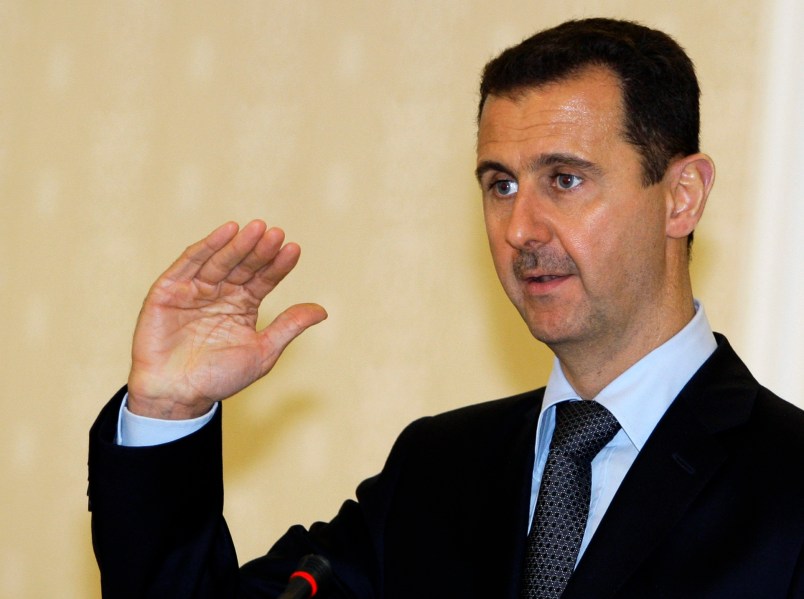BEIRUT (AP) — Syrian rebels and government forces began observing a 10-day truce on Thursday in the last rebel-held area of the central city of Homs, marking another setback for opposition fighters, activists said.
Government forces had blockaded al-Waar for some 20 months, only sporadically allowing in food. It is not clear how many civilians remain in the sprawling area separated from the rest of the city by the Orontes River.
Activist Beibars al-Tilawi said officials promised to allow the U.N. to deliver more food while the two sides discussed how to end the standoff. The Britain-based Syrian Observatory for Human Rights also reported the truce.
Al-Tilawi, who spoke from al-Waar via Skype, said the rebels were outgunned, and that the experience of fighters once holed up Homs’ Old City was instructive: the area was destroyed, thousands of civilians were killed or forced to flee, and ultimately rebels negotiated their surrender in May 2014.
“They want to prevent Syrian forces from targeting the al-Waar area with military action, so it won’t be like the Old City of Homs, where in the end, negotiations and diplomacy solved the problem,” al-Tilawi said.
He said the rebels may end up surrendering the area over to government forces or remain there under a more lasting deal. Both approaches have been employed in other parts of Syria in the past.
Western diplomats and local officials have championed local truces as a way of easing the suffering caused by Syria’s four-year conflict, which the U.N. estimates has killed some 220,000 people. But critics say the truces reward Syrian government forces for blockading civilians and that the government does not always live up to its obligation to allow the regular delivery of food and other aid.
Western-backed rebels have been retreating in northern Syria for months, caught between government forces on one side and jihadi groups like the Islamic State and the al-Qaida-linked Nusra Front on the other.
Russia, a key ally of President Bashar Assad, is meanwhile hoping to bring the government and the opposition together in a Jan. 26 meeting to agree on the basis of a future dialogue.
Most opposition groups, including the Western-backed Syrian National Coalition, have said they will not attend the Moscow talks, saying the framework for the discussions is unclear and the meetings have little chance of success.
In an interview with the Czech newspaper Literarni Noviny, Assad said the two sides would discuss the foundations for a dialogue focusing on Syria’s unity, fighting terrorism and supporting the army.
“As to what I expect from this meeting, I think we should be realistic since we are dealing with personalities,” Assad said. “If we succeed, it’s a good thing. If we don’t, we will not lose anything.”
In Geneva, U.N. envoy Staffan de Mistura urged the international community to make 2015 the year in which movement toward a political settlement of the conflict takes place. He welcomed the Moscow initiative, but also pushed his idea for a so-called “freeze” in the fighting in the northern city of Aleppo.
“We are aiming at the reduction of violence and possibly a freeze of all military activities, bearing in mind the need of an accelerated humanitarian aid,” he said. “Our hope is that Aleppo could be a signal of goodwill, a confidence-building measure which could and can facilitate the re-starting of a political process with a clear political horizon.”
___
Associated Press writers Zeina Karam in Beirut and Albert Aji in Damascus contributed to this report.
Copyright 2015 The Associated Press. All rights reserved. This material may not be published, broadcast, rewritten or redistributed.







Jaw-jaw is always better than bang-bang.